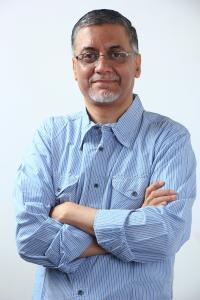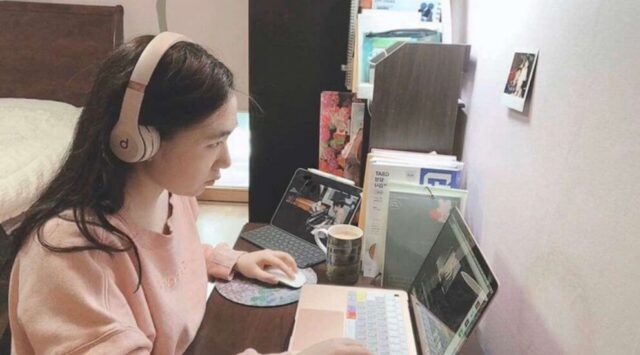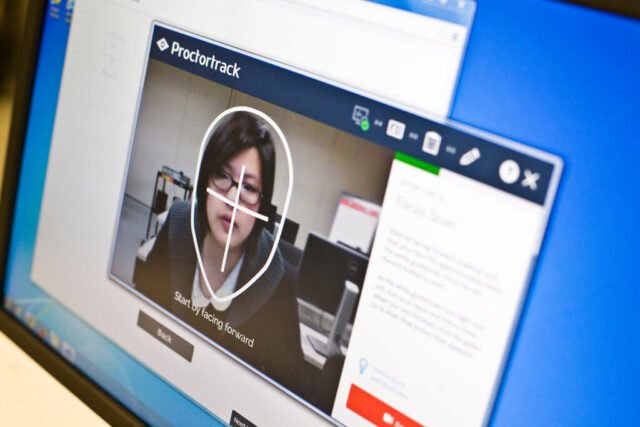2020 has not just been a year full of despair and suffering, but also a year that has taught several skills to the ones keeping up with trends and technology.
From Dalgona coffee to delectable dishes, from technology friendly to technology savvy, from moronic videos to videos showcasing artistic expertise, the list goes on.
But on the top of the list come students who, by any means whatsoever, made excellent use of technology to aid in cheating during online examinations.
Shifting to a digital mode ever since the coronavirus struck has not been optimal for many institutions. After a long break, it was decided that online lectures and classes be granted to not ruin the consistency of education impartation.
Exams, the basis of assessment, could not be neglected and so, special patterns and techniques were undertaken for just and proper conduct.

Anurag Mehra, a Professor of Chemical Engineering and Associate Faculty at the Center for Policy Studies at IIT Bombay, wrote in an article published with the NDTV about the issues teachers have been facing lately, majorly relating to the cheating intentions and methods adopted by students in general during online examinations. From barely passing ones to scholars, all seem to be actively participating in the deception policies.
He wrote, “Even high scorers have been involved, so this is not something that students are doing simply to “pass” the course. Much of it seems to be driven by the circular argument that since everyone else must be using unfair means to gain a relative advantage, I too must do the same.”
Technology-Enabled But Limited Likewise
On one hand, new paradigms were set and up-to-the-minute technological use was taught, while on the other hand, countering skills and technology were learned.
Particularly in the arena of educational institutions, where teachers were engrossed in educating and providing maximum aid to the students, while the latter was bothered only about the unfair means they could adopt to score up and beyond.

The paradox being, while the students short on means to connect digitally and give exams got dispirited, the ones who had all the means misapplied them on reckless explorations into the cheating zone.
Teachers too, suffered after making it easier for students to study and give exams because they had to keep an eye on the disturbing elements of the class as well.
Read More: Cheating and How India’s Education System Is Failing Its Students In Educating Them
Creativity Unlocked
The ways students sought to cheat inspired and annoyed teachers alike. Their workload got extended but the creativity of students raised some eyebrows.
If only these students had obsessed the same way overstudying. Proctors did catch some students using unfair means and the new tactics used left them speechless.
“Even more interestingly, examination recordings played back at high speed actually reveal “sudden unusual” gestures; then, when played back at slow speeds, these gestures can be identified as surreptitious actions such as accessing other devices, paper notes, and “looking elsewhere”, wrote professor Anurag Mehra in his post.

Scribbling notes inside the hand and hiding chits in the upper wear have been the most common methods adopted by students, so teachers made it a custom to check hands and ask students to empty their pockets right before examinations.
Online proctors, with the eye of an eagle, scanned the surroundings of the student during Google Meet/Zoom examinations to prevent cheating of any kind.
Some newbies in the cheating arena left proctors in laughing fits after trying to take screenshots of the questions, forgetting that the webcam works both ways, nevertheless getting either straightaway suspended or called out. Proctors could even make out whether a student was typing or simply copy-pasting their way into the exam.
While the teach-from-home method allowed teachers to have drinks, snacks, and full-fledged meals at their disposal, students could not ask for a loo or water break as this could be a possible try at cheating. Herein, the genuine ones suffered but the ones guilty had to sigh and keep looking for another means to score.
The top of the cheating chain consisted of those students who used small mics to “think loudly” which then got picked up by either of the hi-tech sisters, Siri, and Alexa. Proctors have been thinking of several manners to decode cheating schemes and prevent unfair means during online exams.
Professor Mehra, explaining the extent teachers have had to go through in order to prevent cheating, wrote, “If you cannot see what they are writing on their device, focus a camera on that; record your screen while working; do 360-degree scans every 15 minutes to show what objects are present in the surroundings.”
Why The Extraordinary Practices?
India has always kept the numbers-game at the top of its priority list. From schools to colleges, scores have been considered the ultimate mark of intelligence and hard work.
This toxic mentality has caused us more than we could have ever imagined. Suicides are just a small part of the bargain. The mental harassment and self-inflicted torture students undergo (time and again) to score high has become the norm.
Under the burdensome policy of the society, to score the highest and get validated by even the most irrelevant of beings, students have taken to cheating.
Not bothering about incorporating knowledge or about understanding what is being taught, students simply indulge in ways to score higher since that is, in practicality, all that matters.
Professor Mehra talked about the education system and blamed the initiation of the numbers game on them, “Board examinations reinforce the “importance” of this rat race by awarding ridiculously high marks – sometimes touching 100% – and the crass eulogization of “toppers”.”
He distributed the blame among parents as well pointing at the blind support they provide at times for the child to score higher thereby disregarding all scope of genuine education and rich knowledge, “Stories abound of how parents arrange for their child’s school projects to be done by someone else or even buying a “project” off the shelf.”
Even after hearing and reading numerous success stories of those who have built their fate and career by themselves, irrespective of the failures or the unapproved scores, students fail to accept or come to terms with the insignificant role of marks in our lives.
The constant feeding by such parents that scoring well is the only means to a better and successful life has favourable results for none.
Not to mention the dilemma of students interested in education and actually striving for good results based on the efforts and brains they put in.
The consist bullying and the attack on mental health, as well as physical (in severe cases) for being upright and not paying heed to the cheating methods adopted by fellow classmates to score good or for not “helping” them score well by sharing notes or assignments, is sickening.
Professor Mehra goes, “The consequences of not “sharing” can be quite harsh – being called names on social media, social boycotts, and even threats. I have even known of cases where parents have called their child’s classmates and bullied them into “sharing” stuff!”
Students are suffering harshly in the absence of morals and ethics and parents are losing their children to mental health. If that is what we want for all of our children, then let’s go ahead and keep blindly pushing them in the rat-race and seeking good marks at the cost of their precious well-being.
What Can Be Done?
Professor Mehra writes, “Tweaking conventional tests by having long papers, different question papers for different students, open-books/notes, etc. do help in small ways, but do not prevent people from “sharing” answers or methods. The use of projects, term papers, oral examinations, and open-ended problems should be explored, along with the enforcement of severe penalties for copying and plagiarizing,” thereby eliminating the discovery of any fool-proof method of preventing the usage of unfair means at the moment.
So until any faultless plan gets hatched, the proctors will have to keep struggling and the ideal students will have to keep striving for what’s most cherishable – ethics, morals, and a keen sense of understanding while the “cheating gang” may or may not decide to go ahead with the new method of cheating they devised while you were busy going through this article.
Image Source: Google Images
Sources: NDTV, NY Times, Washington Post
Find The Blogger: @evidenceofmine
This post is tagged under: IIT, college, school, 2020, coronavirus, online teaching, online education, online exams, digitization, skills, dalgona coffee, trend, technology, dishes, cheating, online examinations, institutions, organizations, educational institution, Anurag Mehra, chemical engineering, professor, scholars, India, teachers, students, proctors, notes, cheating methods, google meet, zoom, webcam, work from home, teach from home, hi-tech, internet, online, digital mode, Siri, Alexa, society, education, knowledge, morals, ethics, values, award, failure, success, board exams, parents, project, assignment, homework, bully, scores, marks, result, cheating methods students use during online exams, how do students cheat in online exams, why are proctors suffering, how do proctors detect cheating during online examinations, what are the different ways of cheating during online exams
Other Recommendations:
There Is A Cheating Mafia In The Indian Education System: Some Popular Cases



































[…] Read More: IIT Professor Talks About Hi-Tech Cheating During Online Exams […]